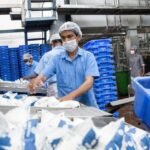Food safety is a cornerstone of public health, ensuring that food remains safe, hygienic, and free from contamination. It covers the proper handling, preparation, processing, and storage of food to reduce the risk of foodborne illnesses.
Along the supply chain, multiple challenges arise. Biological hazards such as bacteria, viruses, and parasites, along with chemical contaminants like pesticides, additives, and heavy metals, are common threats. Physical hazards, including foreign objects, further add to risks. At the same time, poor hygiene, improper storage, and weak regulatory compliance remain critical food safety issues.
Effective prevention requires global and national oversight. Organizations such as the WHO and FAO promote strict food safety standards, while certification systems like HACCP in food safety management provide structured approaches to identifying and controlling hazards. These frameworks are vital in reducing risks and ensuring safer products for consumers.
By addressing food contamination proactively and strengthening monitoring systems, the food industry can protect consumer health, build long-term trust, and contribute to a more resilient and sustainable food ecosystem.
In this section, various issues related to food safety are discussed.











